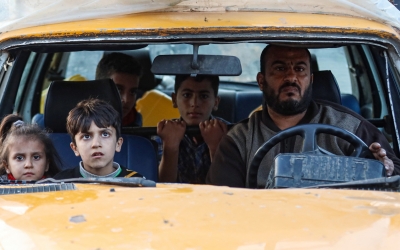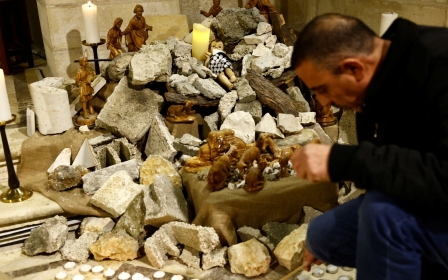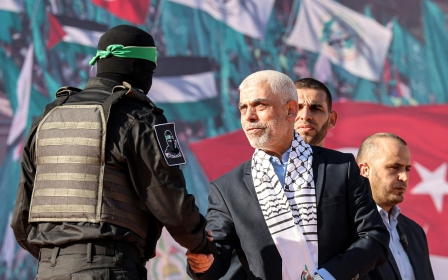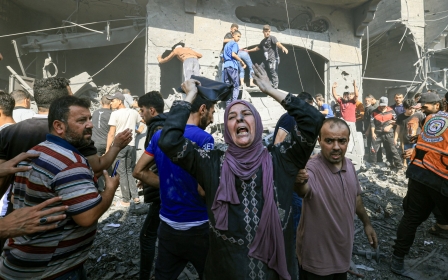War on Gaza: Egypt proposes detailed ceasefire plan as Israel vows to expand Gaza campaign
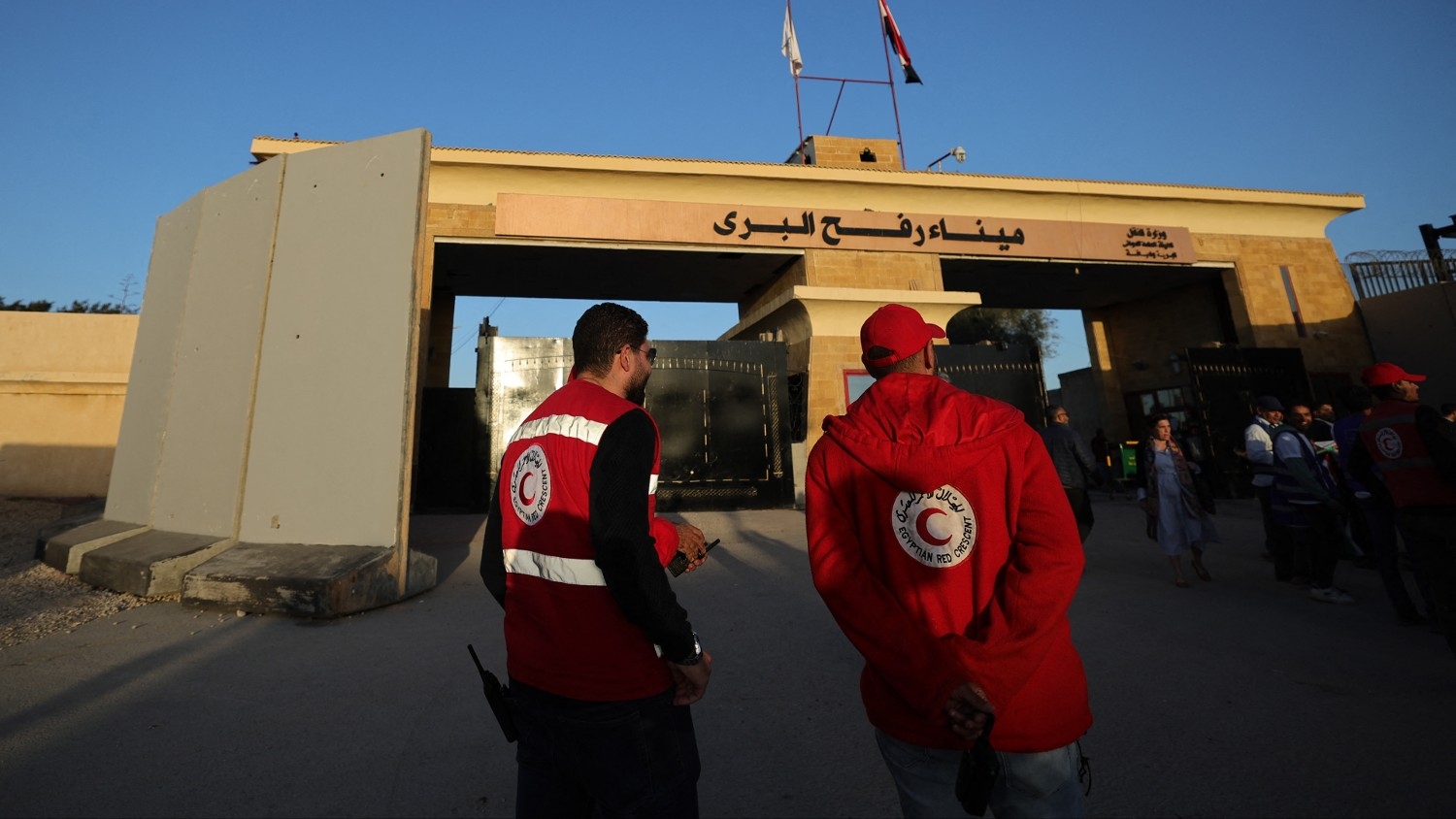
Egypt has proposed an extensive plan for a ceasefire and post-war situation in Gaza that includes the full withdrawal of Israeli forces from Gaza and a new technocratic government in both Gaza and the West Bank.
The proposal, reported by several news outlets, outlines a multi-stage cessation of hostilities that would eventually see the full withdrawal of Israeli forces from Gaza and a unified Palestinian government overseeing the enclave.
The plan includes several exchanges of captives. The first stage would see Hamas and armed Palestinian groups release all civilian captives being held in Gaza in exchange for a negotiated number of Palestinians being held in Israeli prisons. The result would then be a truce and pause in fighting of between seven and 10 days.
Then during the second stage, Hamas would free all female Israeli soldiers being held captive, and Israel would again free additional Palestinian prisoners. The second stage would include an additional pause in fighting of one week.
The last stage would include a final exchange of captives - Hamas would release the remaining captives and Israel would release more detained Palestinians. This would take place after "negotiations [are] held for a period of one month", and this phase would also see Israel pulling its forces back to the Gaza border and also continue to cease all aerial campaigns on the Strip.
New MEE newsletter: Jerusalem Dispatch
Sign up to get the latest insights and analysis on Israel-Palestine, alongside Turkey Unpacked and other MEE newsletters
Hamas would also cease any armed actions against Israel.
The plan was presented to Israel, Hamas and the US on Monday. Egypt's proposal would also see Cairo, alongside Doha and Washington, engage in negotiations to create a technocratic government to head both occupied Gaza and the West Bank.
The proposal is the most extensive and detailed ceasefire plan since the war on Gaza began in October, however, it appears unlikely to gain traction from either of the warring parties.
Follow Middle East Eye's live coverage of the Israel-Palestine war
Israel's war cabinet is due to discuss the proposal on Monday evening, but a western diplomat told the Associated Press that Israeli Prime Minister Benjamin Netanyahu's cabinet is not likely to accept the proposal in its entirety.
Netanyahu has also vowed to press on with the military campaign on Gaza, with the stated goal of eliminating Hamas.
"We are expanding the fight in the coming days... this will be a long battle and it isn't close to finished," he said.
At the same time, several Egyptian officials told Reuters that both Hamas and Islamic Jihad rejected the proposal that they both relinquish their power in Gaza.
Bombing disabled civilians
The news of the ceasefire plan comes as the death toll in Israel's war on Gaza continues to surpass what was already an unprecedented height. As of the time of writing, the number of Palestinians killed in Gaza was 20,674, with more than 8,000 of those killed being children.
An additional 54,536 have been wounded by Israeli attacks.
The death toll from Israel's attack on the Maghazi refugee camp in central Gaza reached 106, Palestinian medics said on Monday.
Survivors told Middle East Eye that the bombed house was full of displaced civilians and disabled people.
"Why did they bomb the house? Why did they bomb civilians and children, most of whom were disabled? All my siblings were killed in the house. Thanks to God for everything. We will stay steadfast and won't leave this land," Um Mohammed told MEE.
Another eyewitness, Ashraf Alhaj Ahmed, said that most of the displaced people in the house had evacuated from al-Buriej to shelter in the Maghazi camp.
The Palestinian Ministry of Health said on Monday that over the past 24 hours, Israeli attacks on Gaza killed 250 Palestinians.
Anxiety, confusion amid further forced expulsion
Israel dropped leaflets on Monday saying residents of Khan Younis should move to the Rafah neighbourhoods of al-Shaboora, al-Zahoor and Tal al-Sultan.
Khan Younis was initially designated a "safe zone" by Israeli forces, and thousands of people left their homes to seek refuge and shelter there from Israeli bombardment, according to Ahmed, a 24-year-old from block 112 in Khan Younis. However, the area is being subjected to intense Israeli bombardment.
'When we saw the news, I started crying hysterically. Where would I go with these children?'
- Asmaa Sawalha, Palestinian mother of four
The instructions from Israel have created further anxiety and confusion as Palestinians in Gaza are now being forcibly displaced several times over.
The Israeli military has not provided any assistance or guidance on the "evacuation" from Khan Younis to Rafah, leaving people scrambling to find solutions to leave.
"Moving to Rafah is very difficult and expensive for us. The cost of hiring a four-seat car is 500 shekels ($138), something we cannot afford. I will move to the al-Mawasi area, and I hope it is a safer place," Ahmed said.
When Asmaa Sawalha, a mother of four who recently moved to the Deir al-Balah refugee camp from northern Gaza, was told by Israeli forces to move again, she broke down in tears.
"When we saw the news, I started crying hysterically. Where would I go with these children?" Sawalha told MEE.
Senior Iranian military adviser killed in Syria
An Israeli air strike outside the Syrian capital Damascus on Monday killed a senior adviser in Iran's Islamic Revolutionary Guards Corps (IRGC), according to Iranian state media.
The adviser, Sayyed Razi Mousavi, was responsible for coordinating the military alliance between Syria and Iran. The IRGC said that Israel would pay for killing Mousavi.
"Undoubtedly, the usurper and savage Zionist regime will pay for this crime," the IRGC said in a statement read on state TV.
There was no immediate comment from Israel's military.
Iranian President Ebrahim Raisi said the assassination showed Israel's weakness.
"This act is a sign of the Zionist regime's frustration and weakness in the region for which it will certainly pay the price," he said, as reported by state media.
The killing is the latest regional escalation outside of Gaza since 7 October. Earlier this month, Iran said Israeli strikes had killed two IRGC members in Syria serving as military advisers there.
'No Christmas as usual'
Across the United States, pro-Palestine activists have mobilised during the Christmas holiday, organising coordinated demonstrations that targeted major commercial centres as well as travel hubs.
On Monday, dozens of protesters showed up outside the homes of several top American leaders, including US Secretary of Defense Lloyd Austin and White House National Security Advisor Jake Sullivan, demanding a ceasefire and end to Washington's support for Israel's war on Gaza.
"Austin: we are at your gate, justice is our only fate," the protesters shouted outside the Pentagon chief's residence.
The calls for a ceasefire were echoed by Pope Francis, who used his Christmas message to plead for the end to the war on Gaza.
"I plead for an end to the military operations with their appalling harvest of innocent civilian victims, and call for a solution to the desperate humanitarian situation by an opening to the provision of humanitarian aid," he told thousands of faithful gathered in Saint Peter's Basilica in the Vatican.
"My heart grieves for the victims of the abominable attack of 7 October, and I reiterate my urgent appeal for the liberation of those still being held hostage," the 86-year-old said in his Christmas Day message to the faithful.
*Additional reporting by Ahmed al-Sammak and Mohammed al-Homs
Middle East Eye delivers independent and unrivalled coverage and analysis of the Middle East, North Africa and beyond. To learn more about republishing this content and the associated fees, please fill out this form. More about MEE can be found here.


